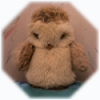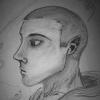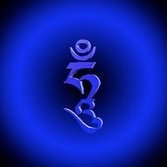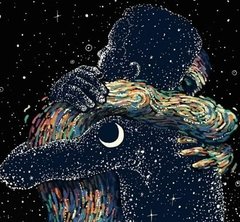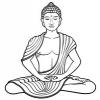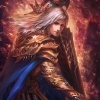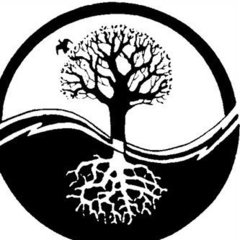Search the Community
Showing results for 'Dream'.
Found 129 results
-
Lucid dream is coming, but you can do the connection at waking state too after many types of progressions. Pressure builds up, the stage is triggered in waking life(triggers sensual thoughts and here is i think we need actual celibacy otherwise we miss or jump off the train), and in dream state you become lucid and find a female being to enter and connect to. (i guess it is just a scenario of my clingings to the sensation i need experience) but still i think celibacy is needed and at minimum a million dollar point, it is for that you would not express the dark remains what runs in parallel with manual labor. Different styles of 'lucid dream' comes, lower organ and in head a point is opened in a semi real state what isn't like the normal lucid dream, you wake up from a dream but not fully woken up. ---- you just need the taste what lucid dream is, then need use that taste to find that state while awake. (imho that is a crucial difference while speaking amongst lucid dreamers). Later the sensation, by the way at first it seem cold and electrical but later it is not, therefore i think it is said "Lucid" the waking up in a dream is secondary importance, i think its just that you are in head area and there is awareness included and through center there you get sensation and will be transported to other world. Celibacy and lucid are from a same track. -- i have questioned and search people descriptions on what lucid dream is. And reached the conclusion that not everyone lucid dream is lucid dream same definition. So to know what lucid dream is there is a sensation, definite characteristics. Not just waking up in a dream and living through a scenario there, i mean fundamentals and things you do before having a dream, what is noticed etc. I have spoken to someone and i couldn't beat that person enough to get understood what is meant scenario details and what are the sensation or characteristics of a lucid dream. So that person talking about how long it lasted, what he did etc. --- in short: Lucid dream is for to stimulate the high-end of a sensual organ to get that sensation. In waking life you get activated beforehand, then need do celibacy in order to get a relevant dream. Lucid dream is not the reference to dream where you are woken up, but it means you are in head region and need release to get down. The entire celibacy politics is that you wouldn't waste the opportunity to get a dream world sensation unlocked to waking life, that sensation goes through different place back up and the connection is done manually without dream then. And once the mastery is gotten you won't get a lucid dream sensation of the same sensation because you did the entire circle manually in one shot so you will skip that circle becase you mastered it. Last time i had a microsecond long lucid dream(get the point? its not for to practice meditation there or live thousand years). The lucidity is a sensation itself, just a start for other types of happenings.
-

According to this dream, I should be practicing Tai Chi???
ChiForce posted a topic in Daoist Discussion
I have this strange dream few weeks ago. I dream that I was practicing Pole Standing Tai Chi...in a place where I should not be doing. That was how I felt. Somehow, I was with another student and there was a teacher in front of us. I didn't get to see his face or who this teacher was or if he was an immortal. What happened was that I felt the chi moving in my arms. In a way that the chi was shifting weight on my arms from left to right. Giving the sense of motion of titling my body from right up left down and left up and right down. I was rocking from left to right and right to left like I was on a boat. I felt this movement in the dream. I am pretty sure my actual body was experiencing this sensation as I was dreaming this scene. Then, the scene changed. Now, I found my arms were in front of me, in front of my upper dan tien. My wrists were bend and the palms facing outward. Again, I sensed my chi was moving in my arms now and slowly being projected like waves. My arms were moving like before doing the Pole Standing Tai Chi. Moving right up and left down and left up and right down. Throughout the entire dream sequences, I felt this rocking sensation the whole time.... Anyway, I just picked up two books by master Waysun Liao, "Tai Chi Classic" and "Restoring Your Life Energy...." And probably would begin to practice Tai Chi.... It would blow my mind if I could make great progress from the book.... -
I think I might occasionally dream but are able to open my eyes, and am wondering whether someone knows what could be going on. Sometimes when I 'crash' on the sofa because I feel tired (e.g. from a meal, although strangely not right after eating but towards the end of the digestive phase) and take a nap, what would happen is that I go into a recurring dream theme of having difficulty opening my eyes. This time that I still remember well, I was only able to occasionally half-open my left eye, with a lot of effort. And I was seeing exactly what I would see when opening that eye awake, lying there on the sofa, part of my arm in the view etc.. And then apparently the typical dream consciousness that likes to pick up impressions subconsciously and work with them couldn't not deal with that strong impression and the dream started revolving around that. Several times I got up in the dream and tried opening my other eye, or sometimes just doing stuff like browsing a catalogue or a video, as if to train my mind to awake to open the eyes by busying it with awake-like stuff. I would use my fingers and try to pull open my eyelid(s), but that didn't succeed. They were just wanting so strongly to stay closed, just like when extremely tired. In another moment I would move my hand(s) in front of that open eye vista and realize that nothing changes about it, that I cannot see my moving hand in front of me, as if the image was burnt in. (But when closing the eye things went black. Then I would actually dream of just having my eyes closed.) Then I would desperately keep seeking and eventually see my own face with eyes within that image, pretty much like that faint reflection of your own eye you have in your glasses if you focus on it, and then I noticed how when moving my hands my eyes (both open) in that reflection would follow the hand, and occasionally the speed of that would increase. So that was definitely the dream component. That reflection then assumed a wider view and I saw a villainous person figure looming over me from behind, not moving (fictional character, likely just symbolic for something) and I did defensive movements with my hands as if to ward him off or beat him up, and that in that moment felt distinctively as if I was out of the dream already, trying to do some 'dream aftercare' just in case. But that was still while asleep. I then woke up and felt very depleted, as usual after I take a sofa nap instead of a proper sleep in my bed. Now, I don't want to go all 'evil spirits' with this, but I think it could still all be an expression of my subconscious that my mind disagrees with being in the sleep state at that time and would much rather be awake. (I am in a prolonged situation where I have a desire to be more active but have trouble finding a path to that.) I find this quite severe. And I'm not sure whether it fits the diagnosis of sleep paralysis or is more like a partial version of the opposite, since I can move an eyelid while fully asleep. (Wikipedia: "Sleep paralysis is when, during awakening or falling asleep, one is aware but unable to move.") Although many descriptions there match.
-

Ultimate reality, the dream world, language, and a radical approach to awakening
roger posted a topic in General Discussion
I read something very interesting by Eckhart Tolle that's given me an exciting new idea about awakening to ultimate reality. He said that our thoughts 'are not true absolutely'. He wasn't just talking about value judgments or opinions, but nearly ALL of our thoughts. I've learned that love is all there really is and that everything is really perfect. Fear, attack, and badness are only illusions. They're part of the DREAM WORLD. So, if we have the thought, 'I'm feeling kind of anxious today,' we can remind ourselves that anxiety (fear) is only an illusion. If we think, 'That was very unkind of him,' we can remember that lack of love and attack aren't real. Or if we see on the news that something 'unfortunate' happened, we can know that badness is an illusion and that everything is happening as it should. I was already aware of this approach to awakening, but after reading that teaching from Eckhart Tolle, it occurred to me just how much of my thinking acknowledges the dream world as real, rather than as an illusion. -
Upcoming free teachings of dream yoga on Facebook Live starting June 6th. All talks are recorded so you don't have to be available at the scheduled time.
-
I dreamt a lot of stuff one night, but the stuff I keep on remembering was that inside me there was a entity on my liver like sludge with a face on it, and the impression I got was that it was feeding off my energy. Secondly there was octopus-like creatures with no face that I can remember. One giant one was on top of my whole head, and there were other ones as well. They seemed like they were helping out, utilizing energy in order to do things like pull out spikes in my brain and other areas. Thirdly there was some entity that was made out of blackness and eyes, flat and without a specific location. This didn't leave me a big impression, I thought "if I leave it alone, it will leave me alone". The liver entity gave me the largest impression. I have chronic fatigue and it seemed like it was the culprit sucking up all my energy. Does anyone have anything for defeating energy parasites? Were the octopus creatures actually helping or just pretending? Or is a dream just a dream, even though this one gave such a large impression on me? Alternatively I can continue practicing FP chi kung even though I feel it is eating my energy.
-
This movie was inspiring. It is about a man who had dream to walk the twin towers on a tight rope. Is there a path to finding a truly inspiring dream? What steps should one take to find their dream?
- 1 reply
-
- 3
-

-
Meow all: I had a really strange lucid dream last night. Someone I know, but not in a good relationship lately was casting I-Ching in regard to me. And they got "33 changes to 8". We have not seen each other for a while and, honestly, seems like "quarrelsome star" had been over energizing this relationship, so I found this dream rather odd. The person in question does active cultivation and such. Interestingly enough, it was exactly "33" ( retreat) which caused some issues ( they needed a major ego work in order to proceed further, etc). I was kind of offended by that, but hey, if someone needs space, go for it. However, the "retreat" did not start well ( caused loss of money from my side). If someone will just show up out of the blue to make amends... should I go with "8"? I am just a human and I do have my feelings hurt because of that rejection. Any thoughts welcome... Meow...
-
After contemplating this quote from the "Lower Dan Tien Question" thread... "The three energy centers is the 作用區 Effect area of 玄關 Entrance There is only one 玄關一竅 Entrance know nothing 因為玄關一竅是第三眼接收中脈與天地之交流的出入口 Because the entrance is the third eye to accept the entrance in the vein and the exchange of heaven and earth It's a hole. Look like a hole. A hole in the dark. But after the 中脈 Midrib is opened completely, the hole will fill of light." * ...I was suddenly reminded of lore my races immortal teacher had shared with one before. I ponder, did vve De Danann spawn and I-rishis grok the lead to gold score? ...Probsz. * "Now the Dagda had a son. He was called Angus the Mac Oc, which means the young son. He had that name for he was conceived and born in one night. But how that came to be is another story... His mother was a woman of the Sidhe... and the Mac Oc had powers to see the future..." * ....The day had been wet and wild, and the woods looked dim and drenched from the window where Con sat. All the day long his ever restless feet were running to the door in a vain hope of sunshine. His sister, Norah, to quiet him had told him over and over again the tales which delighted him, the delight of hearing which was second only to the delight of living them over himself, when as Cuculain he kept the ford which led to Ulla, his sole hero heart matching the hosts of Meave; or as Fergus he wielded the sword of light the Druids made and gave to the champion, which in its sweep shore away the crests of the mountains; or as Brian, the ill-fated child of Turann, he went with his brothers in the ocean-sweeping boat farther than ever Columbus traveled, winning one by one in dire conflict with kings and enchanters the treasures which would appease the implacable heart of Lu. He had just died in a corner of the room from his many wounds when Norah came in declaring that all these famous heroes must go to bed. He protested in vain, but indeed he was sleepy, and before he had been carried half-way to the room the little soft face drooped with half-closed eyes, while he drowsily rubbed his nose upon her shoulder in an effort to keep awake. For a while she flitted about him, looking, with her dark, shadowy hair flickering in the dim, silver light like one of the beautiful heroines of Gaelic romance, or one of the twilight, race of the Sidhe. Before going she sat by his bed and sang to him some verses of a song, set to an old Celtic air whose low intonations were full of a half-soundless mystery: Over the hill-tops the gay lights are peeping; Down in the vale where the dim fleeces stray Ceases the smoke from the hamlet upcreeping: Come, thou, my shepherd, and lead me away. "Who's the shepherd?" said the boy, suddenly sitting up. "Hush, alannah, I will tell you another time." She continued still more softly: Lord of the Wand, draw forth from the darkness, Warp of the silver, and woof of the gold: Leave the poor shade there bereft in its starkness: Wrapped in the fleece we will enter the Fold. There from the many-orbed heart where the Mother Breathes forth the love on her darlings who roam, We will send dreams to their land of another Land of the Shining, their birthplace and home. He would have asked a hundred questions, but she bent over him, enveloping him with a sudden nightfall of hair, to give him his good-night kiss, and departed. Immediately the boy sat up again; all his sleepiness gone. The pure, gay, delicate spirit of childhood was darting at ideas dimly perceived in the delicious moonlight of romance which silvered his brain, where may airy and beautiful figures were moving: The Fianna with floating locks chasing the flying deer; shapes more solemn, vast, and misty, guarding the avenues to unspeakable secrets; but he steadily pursued his idea. "I guess he's one of the people who take you away to faeryland. Wonder if he'd come to me? Think it's easy going away," with an intuitive perception of the frailty of the link binding childhood to earth in its dreams. (As a man Con will strive with passionate intensity to regain that free, gay motion in the upper airs.) "Think I'll try if he'll come," and he sang, with as near an approach as he could make to the glimmering cadences of his sister's voice: Come, thou, my shepherd, and lead me away. He then lay back quite still and waited. He could not say whether hours or minutes had passed, or whether he had slept or not, until he was aware of a tall golden-bearded man standing by his bed. Wonderfully light was this figure, as if the sunlight ran through his limbs; a spiritual beauty was on the face, and those strange eyes of bronze and gold with their subtle intense gaze made Con aware for the first time of the difference between inner and out in himself. "Come, Con, come away!" the child seemed to hear uttered silently. "You're the Shepherd!" said Con, "I'll go." Then suddenly, "I won't come back and be old when they're all dead?" a vivid remembrance of Ossian's fate flashing upon him. A most beautiful laughter, which again to Con seemed half soundless, came in reply. His fears vanished; the golden-bearded man stretched a hand over him for a moment, and he found himself out in the night, now clear and starlit. Together they moved on as if borne by the wind, past many woods and silver-gleaming lakes, and mountains which shone like a range of opals below the purple skies. The Shepherd stood still for a moment by one of these hills, and there flew out, riverlike, a melody mingled with a tinkling as of innumerable elfin hammers, and there, was a sound of many gay voices where an unseen people were holding festival, or enraptured hosts who were let loose for the awakening, the new day which was to dawn, for the delighted child felt that faeryland was come over again with its heroes and battles. "Our brothers rejoice," said the Shepherd to Con. "Who are they?" asked the boy. "They are the thoughts of our Father." "May we go in?" Con asked, for he was fascinated by the melody, mystery, and flashing lights. "Not now. We are going to my home where I lived in the days past when there came to me many kings and queens of ancient Eire, many heroes and beautiful women, who longed for the Druid wisdom we taught." "And did you fight like Finn, and carry spears as tall as trees, and chase the deer through the Woods, and have feastings and singing?" "No, we, the Dananns, did none of those things--but those who were weary of battle, and to whom feast and song brought no pleasure, came to us and passed hence to a more wonderful land, a more immortal land than this." As he spoke he paused before a great mound, grown over with trees, and around it silver clear in the moonlight were immense stones piled, the remains of an original circle, and there was a dark, low, narrow entrance leading within. He took Con by the hand, and in an instant they were standing in a lofty, cross-shaped cave, built roughly of huge stones. "This was my palace. In days past many a one plucked here the purple flower of magic and the fruit of the tree of life." "It is very dark," said the child disconsolately. He had expected something different. "Nay, but look: you will see it is the palace of a god." And even as he spoke a light began to glow and to pervade the cave and to obliterate the stone walls and the antique hieroglyphs engraved thereon, and to melt the earthen floor into itself like a fiery sun suddenly uprisen within the world, and there was everywhere a wandering ecstasy of sound: light and sound were one; light had a voice, and the music hung glittering in the air. "Look, how the sun is dawning for us, ever dawning; in the earth, in our hearts, with ever youthful and triumphant voices. Your sun is but a smoky shadow, ours the ruddy and eternal glow; yours is far way, ours is heart and hearth and home; yours is a light without, ours a fire within, in rock, in river, in plain, everywhere living, everywhere dawning, whence also it cometh that the mountains emit their wondrous rays." As he spoke he seemed to breathe the brilliance of that mystical sunlight and to dilate and tower, so that the child looked up to a giant pillar of light, having in his heart a sun of ruddy gold which shed its blinding rays about him, and over his head there was a waving of fiery plumage and on his face an ecstasy of beauty and immortal youth. "I am Angus," Con heard; "men call me the Young. I am the sunlight in the heart, the moonlight in the mind; I am the light at the end of every dream, the voice for ever calling to come away; I am the desire beyond you or tears. Come with me, come with me, I will make you immortal; for my palace opens into the Gardens of the Sun, and there are the fire-fountains which quench the heart's desire in rapture." And in the child's dream he was in a palace high as the stars, with dazzling pillars jeweled like the dawn, and all fashioned out of living and trembling opal. And upon their thrones sat the Danann gods with their sceptres and diadems of rainbow light, and upon their faces infinite wisdom and imperishable youth. In the turmoil and growing chaos of his dream he heard a voice crying out, "You remember, Con, Con, Conaire Mor, you remember!" and in an instant he was torn from himself and had grown vaster, and was with the Immortals, seated upon their thrones, they looking upon him as a brother, and he was flying away with them into the heart of the gold when he awoke, the spirit of childhood dazzled with the vision which is too lofty for princes. (The end) George William Russell's essay: Dream Of Angus Oge, 1897 * The Three Cauldrons of The Dagda 1. 2. https://www.youtube.com/watch?v=DXqOLebOmyg * Cheerio.
-
In Chapter 2 of the Zhuangzi, there are two sections where he writes about dreams. One is the famous section about the man and butterfly at the very end of the chapter. In the other section, close to the end, Zhuangzi states, "Eventually there comes the day of reckoning and awakening, and then we shall know that it was all a great dream. Only fools think they are now awake...." Did he believe that the world we are now in is actually just a dream? I keep coming across intellectuals who believe that the world we see is just an illusion of some type. Plato is one ancient example. It sounds like Zhuangzi might be another.
-
I last posted in June when I dreamed about seeing my master again. What I've realized is there is absolutely no dogma to cultivation. You develop your awareness of All that is. We are all capable of using the tools we were born with. I met my master again. This dream was preceded by a telepathic link about 4 days before. The reason he is guiding me is unknown. I don't really understand how he thinks. I am still on the fence as to whether my dreams are simply a products of my sub conscious or they mean something more. I am 23 on the path for 5 years. I began with drug induced kundalini psychosis. While on drugs I was obsessed with breathing techniques and meditation. Misunderstood and greatly unbalanced I learned this was not the true way. This took much time. Years after using drugs I came back into touch with meditation and breathing techniques. Very slowly over the course of two years I relearned how to pull energy without the aid of drugs besides a little caffeine. I have continued doing this breathing exercises til today. I don't really meditate. The way for me still involves balancing myself because of drug use. My master made a comment in a year I might possess the mental qualification to fully commit to the way. In the dream he was helping me understood this book. It was so incomprehensible with levels and drug aided cultivation. A whole chapter was dedicated to cannabis oil. I didn't read it though. It may have been a test to see if I would still use drugs. I don't know. What I thought the way was is not the way. My master gives no dogma and allows me to figure out what I want to do. Like I said I still do not understand if his existence is entirely created of my own mind. The beings I met in my dreams, I can touch them. But they are not real bodies. The words I heard from him told me next time I would be ready. I think I still do not possess the mental qualification of the true way. There is no dogma. Perhaps he is not a master but a guide. Not sure. Aside from the dream of meeting him, I had a breakthrough tonight. I was able to pull successfully to the point of engaging my temples. I have so many mental blockages which translates into pain when energy is pulled through under developed spiritual circuitry. I have been having a very long debate about how masturbation effects being on the way. This is part of what I wish to discuss. I have been thinking the associations of what orgasm mean is the actual hindrance.
-

A technology has been developed to lucid dream, what about enlightenment?
Shad282 posted a topic in General Discussion
A Kickstarter project being developed to help you recognize you are sleeping and thus make you aware in the dream and become lucid: https://www.kickstarter.com/projects/1705207344/the-lucid-dreamer-wake-up-inside-your-dreams so you don't need to train or do anything in order to become lucid and worry about anything. https://www.facebook.com/NowThisFuture/videos/1257420744299103/ some would say that lucid dream may help to clear issue and thus help with chakras and so help with enlightenment, would be more like making a virtual world to deal with your issues and solve them, in a safe place, under your control. would you think it is a good idea? would you think, we might come to a time where an enlightenment pill or something in that space would be invented? wouldn't it be beneficial to just clear your chakras and become aware of energy without the hassle of the whole process? Even though, yes it is about the journey, but still.. things much easier Thanks- 6 replies
-
- 3
-

-
- enlightenment
- meditation
-
(and 3 more)
Tagged with:
-
Hello, i have been practicing Dream Yoga for over thirty years, i just found this forum and would like to know members that share this practice, i live in Mexico City and love to share experiences with other practitioners. blessings, Drakpa.
-
.
-
I am familiar with multi-dimensional dream time experience but would love any opinions on this event that happened last night. I had trouble sleeping and drifted off about 5 am where I found myself in a dark space, barely lit and smoky. The souls here were lost and full of hopelessness and despair. A male tried to have sexual contact with me then a woman appeared who had died from cancer. She had been an attractice woman when she was alive but now her bones showed where once there had been flesh and where the cancer had been was black tendrills coming in and out of her body , it almost looked like a giger painting. It was as if She still seemed to think she was that attractice living lady. A dog was wandering round with its skin looking like dried hide and parts of its bones showing. The poor thing held one of its dead pups in its mouth. Various other characters wandered in and out of the space. They were not malevolent at all but total lost souls. I got the feeling that these are the type of souls that feed off people drinking and engaging in sexual activities. It got too much for me so I said that I was leaving and woke myself up. When I woke up I could feel energy all round me and knew I had to try and help and bring some light in. I am not to familiar with this kind of technique so did the best I could in my own way. I could feel shifts in the energy as I did this. Once I felt I had done all I could the presence of 2 light beings appeared in my mind, one a female to my left and the other a male to my right who I had actually encountered only a few days before. They radiated purity and light and without words made me feel like I had done right and this was what we should be doing to help. The difference in energy was amazing but It broke my heart and I could not help cry tears of sorrow for all these lost souls. A brief description of these beings would be , very pure , gold and white , white skin , blond hair , very beautiful, almost greek in dress with white robes and maybe gold adorments, sitting on thrones. They appear very big in stature at either side of me. So , was this an actual experience or am I just having very lucid dreams ? It puzzles me as I have had dreamtime experiences before that I know for sure were not dreams but multi-dimensional experiences and contact with the light beings have always been when I am awake.
-

Conscious or Lucid Dreaming or Dream Yoga - Any Non-esoteric Resources?
DreamBliss posted a topic in General Discussion
I am looking, primarily, for video resources, followed by audio resources, followed by written resources, on the subject of becoming a proficient conscious or lucid dreamer. I would prefer to avoid all the esoteric mumbo-jumbo stuff. In fact, you can consider that with anything I post at these forums, I want nothing to do with ceremonies and esoteric processes. All spiritual practices are ultimately very simple, it is man in the physical who complicates them. Looking for materials or places where personal experiences in conscious or lucid dreaming are shared. Looking for clear, simple instructions in techniques. Conscious dreaming, lucid dreaming and dream yoga all apply. I want to start having fun with my dreams. I want to adventure and explore. But ultimately, I want to invent, learn and practice. This is my primary motivation. My intention is that the majority, if not all, of my dreams become conscious or lucid. No matter the consequences, if any. 90% or more conscious or lucid dreams, 10% or less dreams where I am not conscious or lucid, the reverse of my current experience. Conscious or lucid dreaming every night on a regular basis. No long intravels between days of lucid dreaming. No intravels at all, or very short ones. It has been (I started to write it is, which would perpetuate the undesired state) somewhat difficult for me to become conscious or lucid in my dreams. I would find a Dream Sign, something that shows up in many of my dreams, and use that to become conscious or lucid. Then the Dream Sign would stop showing up, or I would stop noticing it somehow. Maybe this Vipassana "retreat" I attended will have one advantage, that in learning to "tune in" to my body and what it feels like, what is going on with it. Because I would not be looking to changeable external ques to become conscious or lucid, instead observing my body and breathing, maybe that will help. Training now in using the pendant a friend gave me, holding it, saying, "Lucid Dream" 3 times, then tuning into my body at that moment. We'll see how that goes. I have done, and experienced, some terrible things a few years back when I was having more conscious or lucid dreaming experiences. But I am not as I was then, I am not a Christian anymore, and now I have this meditation training, including Vipassana. I have forgive myself for my actions, worked on any fear I have in me, and freed myself to be as monstrous as I need to be, no restraints, restrictions or rules. But I have sent out a warning to all Dream Characters, so that they will not show up in my dreams if they are not forgiving and patient. I figure once I get everything out of my system I will settle down and be better. I included this brief overview to give you an idea of how I am as a conscious or lucid dreamer and a little of my background. This should help you figure out the best resources to share. As always I appreciate your help. I am moving on from my studies in meditation to focusing on a handful of areas for these few months I still have a home. They are: conscious or lucid dreaming, writing and maybe some Blender modeling/UE4 mapping. I would like to use my dream time for meditation and to learn Unreal Engine 4 (UE4.) These are my intentions. Not goals, because, for me, a goal is something to be attached to, and an intention is not. I have these strong desires and intentions, but I must also flow, or keep my boat pointed downstream. Makes life easier. For those of you confused about this topic, wondering why, my answer is simple. When you become conscious or lucid in a dream, you know you are dreaming while you are in a dream. At that point there is, literally, nothing you can't do. Among other things you can learn anything, practice anything, fly, walk through walls, receive advice about your life and explore the depths of the ocean or the universe. The dream world is a world free of all the restrictions of the waking, physical world. Even time is irrelevant in the dream world. In 5 minutes of lucid dream time you can gain years of study and practice on any subject. People are generally unaware of this, that is why you may not have heard about it. If this subject interests you, look up conscious or lucid dreaming at your local library or bookstore. I started a thread at Dream Views covering one aspect of the dream world: http://www.dreamviews.com/general-dream-discussion/158993-what-if-dream-characters-feel-themselves-real-we-feel-about-ourselves.html Thank you for your help! -
not sure if this is of use to anyone, but thought I would put it out there anyway. as some of you may have seen from my posts, i'm quite interested in the whole tonic herbs thing. have been experimenting with various combinations of herbs/tinctures before bed time and seem to have narrowed it down to a formula that works every time. obviously mileage may vary and you'll need a decent amount of waking lucidity/awareness (namely a meditation practice) as a starting point, as with any method of trying to bring on lucid dreams. nonetheless i've found this to be very effective. two tinctures: dragon herbs supreme shen - lead herb asparagus root http://www.dragonherbs.com/prodinfo.asp?number=015 dragon herbs purple reishi http://www.dragonherbs.com/prodinfo.asp?number=039 you'll want about 2:1 reishi to supreme shen. good amount is 1 and 0.5 droppers, ranging up to 2:1 full droppers. for some reason the purple reishi is much more effective at bringing on lucid dreams than the red type. take just before going to bed, happy dreaming!
-
Has anyone seen this place? I saw it in a lucid dream, swimming in the river toward it, a red temple hidden in the mountains. A rough image I made of it.
-

Does anyone know anything about Chen Tuan & his dream methods?
Oneironaut posted a topic in Daoist Discussion
..... -
Sketchbo0k said: "I would love to learn this. Could you perhaps write a bit about it in a new thread?" Dream Yoga is becoming quite popular. There are many varieties. I practice the Bön method which comes from a very important tantra called the Ma Gyü. There are significant differences between views from different practices. In particular, western dream teachers tend to emphasize content, whereas the Tibetan approach does not concern itself too much with content. There are Tibetan practices that involved dream content but it's not important in the dream yoga practice itself. For the Tibetans, the practice is much more about recognizing the nature of dream and how that relates to our lives, deaths, and the nature of mind. The content, according to the Tibetans, is simply a reflection of the content of our daily lives, feelings, and thoughts. In the Bön view, as well as that of many shamanic and indigenous cultures, waking life is no more "real" than dream life. From the perspective of waking life, being awake seems real and the dream seems illusory. From the perspective of the bardo and the absolute, waking life is equally illusory and transient. Dream yoga trains us to become aware, in the dream state, that we are dreaming. In the dream state we are not limited by the same physical, emotional, and psychological constraints as in the waking state. Once we are able to become lucid in dream, we can use that additional freedom to change things that we have difficulty changing in our daily lives. We can take advantage of the fact that we sleep approximately 1/3 of our lives (25 - 30 years for the average person), and try to give ourselves some of that additional time to practice. If we are able to become lucid in our dreams we are more likely to be aware and mindful during our daily lives and we are more likely to be lucid at the time of our death (and beyond, if you subscribe to such notions). The ultimate goal of dream yoga is to help us move towards complete liberation so that we may be of benefit to all others. The basic method involves daytime practices for setting the proper intention upon awakening and before sleep, practices to reinforce the dream-nature of our waking state throughout the day, practices to induce certain types of dreams, and practices for developing and stabilizing lucidity in dreams. If you are interested in this, there are several ways to get instruction. The book -The Tibetan Yogas of Dream and Sleep by Tenzin Wangyal Rinpoche gives a comprehensive outline of the method and practical instructions. It's all you need to get started. He also hosts online workshops on dream yoga once or twice a year through glidewing productions. More expensive but also much more supportive with personalized instruction from Rinpoche and the opportunity to connect with other practitioners in an online forum. Finally, he occasionally hosts retreats on the topic - the most recent was last month. Quite an amazing experience - he's a phenomenal teacher and knows how to connect these sometimes esoteric teachings directly to your life in a very practical way. One word of advice - this is a practice that takes a long time and lots of patience. It is very easy to get frustrated and give up. Be prepared to really make an investment and it will eventually pay off. As I mentioned, there are lots of other resources in different traditions. Alan Wallace has written a book on Tibetan dream yoga, Dreaming Yourself Awake. I can't comment on the book but Alan is also an excellent teacher. I'm hoping there are other practitioners here that will introduce their practices. Good luck and good dreaming!
-
I have to read up on it more. I have been getting guidance with various female beings and the dreams have certain spiritual quality in them.
-
Is the conventional interpretation of the Zhuang Zhou’s Butterfly Dream really a misinterpretation? Hans-Georg Moeller certainly thinks so……… THE DREAM OF THE BUTTERFLY—OR: EVERYTHING IS REAL Herbert A. Giles's translation of the famous allegory of the butterfly dream in the Zhuangzi is beautiful, but unfortunately, as I believe, entirely wrong: Once upon a time, I, Zhuangzi, dreamt I was a butterfly, fluttering hither and thither, to all intents and purposes a butterfly. I was conscious only of following my fancies as a butterfly, and was unconscious of my individuality as a man. Suddenly, I awaked, and there I lay, myself again. Now I do not know whether I was then a man dreaming I was a butterfly, or whether I am now a butterfly, dreaming I am a man. Between a man and a butterfly there is necessarily a barrier. The transition is called Metempsychosis. I quote this translation because of its great influence on the Western perception of Daoist philosophy, especially among Western intellectuals and philosophers. Giles's translation of the Zhuangzi and, in particular, his rendering of this allegory is representative of the general understanding of Daoist philosophy in his generation while, on the other hand, it quite obviously contradicts a traditional interpretation of the text in China. Giles's translation of the butterfly dream has little to do with the original. It is rather an interesting transformation of the text into the patterns of "standard" Western philosophy. Perhaps the butterfly allegory became so popular in the West just because of this "Westernization." When one first reads Giles's version, it surely sounds very Chinese—if only because of the Chinese names and the quite "oriental" butterfly. But upon taking a closer look, it turns out to be an exotic disguise of thoroughly Western ideas. Giles's translation can be compared to the food of many Chinese restaurants in Western countries: it looks Chinese, but the cook has, nevertheless, made it wonderfully palatable to eaters accustomed to the local tastes. Giles's version is based on Zhuangzi's recollection of his dream after he wakes up. Philosophically speaking, the story revolves around a central act of consciousness. Once the philosopher wakes, he remembers his dream of the butterfly, and once he starts remembering this dream, he begins to doubt and reflect on his being and on the problems of truth and appearance. In Giles's rendering, Zhuangzi gains an insight into the continuity of the soul within the chain of existence: he understands that he is part of the great cycle of Metempsychosis or the transmigration of the soul. The act of remembering is at the core of this philosophical realization of the truth. It seems to be the point of departure on the path towards the discovery of the truth about the world and one's soul. Giles's butterfly dream story is an interesting blend of motifs from the Western philosophical tradition. It bears a certain resemblance to the final book of Plato's Republic in which Socrates tells the myth of Er, a person who was allowed to visit the underworld. In the underworld, Er witnessed what happens to the souls there: after their lives on earth, they are judged and sent either to a heaven or to a hell. Having spent a certain amount of time in the underworld, the souls return to earth after choosing a new body for their next life. Before the souls re-enter the world, they have to cross the plains of Lethe—or: Forgetfulness. By this crossing, they lose all their memory of the underworld and go on to live without knowledge of the metempsychosis they have undergone. According to this story, it is only through the act of remembrance—through mentally reaching back before the plains of forgetfulness—that human beings can actually realize their true being and fate: the transmigration of souls. Since Plato, remembrance has been a central motif within Western conceptions of wisdom and knowledge, of thinking and of truth. In Plato's Meno, Socrates tries to prove that all knowledge comes from memory by conducting an "experiment" with an uneducated slave: Just by asking the slave simple yes-or-no questions, Socrates helps him "discover" some basic geometrical rules. He concludes that the slave already had an innate geometrical knowledge and only needed some help to actually remember it. In modern philosophy, G. W. F. Hegel depicted recollection as the way that leads to absolute knowledge in the course of his Phenomenology of Spirit. Old-European philosophers indeed often "thought back" to find the truth. In a similar way, Herbert A. Giles's Zhuangzi has to think back and re-member his dream in order to have the re-flection which leads him to re-cognize what is true and what only seems to be. A second core motif of Giles's butterfly dream story deeply rooted in the Western philosophical tradition is expressed by the most often used term in his translation: I. This I and the related question of what this I truly is make up the philosophical thread that runs through the story. Zhuangzi tells a story about himself, he tells how his I in his dream is the I of a butterfly. Then he awakes and Zhuangzi is, as he says, " myself again. " This very I then starts thinking—and what does it think about? About itself and about what it is! Giles's text is from beginning to end about the I and its reflection on its own being. It is an ironic fact, I believe, that in the history of Western philosophy, there are few texts that treat so exclusively and comprehensively the issue of human subjectivity! A third core motif of Giles's butterfly dream story is doubt. As soon as Zhuangzi remembers his dream, he begins doubting. And again, these doubts are rather existential since they are in regard to his inner self. Did Zhuangzi dream about being a butterfly or is he now a butterfly dreaming he is Zhuangzi? The motif of philosophical doubt is of great importance within the history of Western philosophy. Although Rene Descartes' famous Meditations are usually summarized by the "motto" cogito ergo sum or "I think, therefore I am," one might as well use the motto "I doubt, therefore I am." At least after Descartes, Western philosophers are often seen as experts in doubting, as depicted in Auguste Rodin's sculpture The Thinker. The tradition of Western philosophy has combined these three motifs—remembrance, the being of the "I," and doubt—in various ways. One could very well write a history of (modern) Western philosophy by following the development of these notions. In Giles's translation, Zhuangzi appears to be a paradigmatic Western philosopher in an ancient Chinese robe! A fourth Old-European motif which appears in Giles's butterfly dream comes into play at the end of the story: the motif of the transition of a barrier or transcendence. Once Zhuangzi has realized that there is a border between man and butterfly, he also realizes that he himself as a philosopher can have knowledge of this border and thus that he can philosophically go beyond it. Zhuangzi, by his reflection, can overstep the border between dreaming and being awake, between appearance and truth. This motif alludes to the Western—and especially Judaeo-Christian - distinction between immanence and transcendence. A “meditating” philosopher in the West can mentally reach beyond the barriers of worldly immanence and merely apparent reality. In this way, he or she can move to the higher realm of an infinite, divine, and true world, just like the freed prisoner in Plato's allegory of the cave. A fifth Old-European motif in Giles's butterfly dream is closely connected to the previous one—it is the motif of the unreality or at least the relativity of the world of experience. From the perspective of the "awakened" philosopher, Zhuangzi sees through the unreality of his dreams. What he believed to be true while he was asleep, his then this-worldly and temporally limited existence as a butterfly, is finally unmasked as mere appearance, as a realm of only partial reality. Once the barrier is overcome, then what only seemed to be true is seen as it is. The awakened philosopher looks down on his earlier "unenlightened" experience. Only his mental reflection can elevate him to the realm of truth and free himself from the illusions of dreamlike sensual and temporal experience. In Giles's version, Zhuangzi seems to live through the process of a philosophical transition from the dreamlike phenomenal world to the enlightened realm of the noumenal. The most wonderful transformation of the butterfly dream is, in my view, not the one of Zhuangzi in the story, but rather those performed by Herbert A. Giles. Giles's rendering keeps the oriental surface of the story alive, but completely converts the philosophical content into motifs of the Western philosophical tradition. Giles's magical transformation of the story has been overlooked by many of its Western readers who do not have access to the original texts. If one, however, takes a look at what the text literally says (or rather at what it does not say), and at how its ancient Chinese editor Guo Xiang (252-312) explains its meaning, one will see no evidence of the five motifs discussed above. In the Chinese original, the decisive turning point of the story is not remembering but forgetting. And this forgetting also includes the I and its being—it turns out that there is literally no I and no being in the story. Where Giles introduced doubts in the story, there is doubtlessness in the original, and where he advises the philosopher to transcend barriers, the original advises one to accept borders. Finally, while Giles's story seems to indicate the relativity of the dream world of temporal phenomena, the original text highlights the equivalent reality of all experience. If one reads the butterfly dream story along with Guo Xiang's commentary, one sees the text in a Daoist light. The Crucial difference between the plot of this allegory in Giles's translation and in Guo Xiang's edition is Zhuangzl's reaction when he awakes from his dream. While Giles implies that Zhuangzi remembers his dream, no such remembrance is mentioned in the text, and Guo Xiang's commentary makes it perfectly clear that Zhuangzi does not remember the dream—he has, rather, completely forgotten it. Once Zhuangzi—or as he is called in the story: Zhuang Zhou—awakes, Guo Xiang inserts the following commentary: Now Zhuang Zhou is just as ignorant about the butterfly as the butterfly was ignorant about Zhuang Zhou during the dream. When Zhuang Zhou awakes, he is as unaware of his earlier dream existence as the butterfly in the dream was unaware of Zhuang Zhou's earlier waking existence. Since the plot is completely different, the story has to be read in another manner. This being so, I present my own translation based on the Chinese original and Guo Xiang's commentary: Once Zhuang Zhou dreamt—and then he was a butterfly, a fluttering butterfly, self-content and in accord with its intentions. The butterfly did not know about Zhou. Suddenly it awoke—and then it was fully and completely Zhou. One does not know whether there is a Zhou becoming a butterfly in a dream or whether there is a butterfly becoming a Zhou in a dream. There is a Zhou and there is a butterfly, so there is necessarily a distinction between them. This is called: the changing of things. As opposed to Giles's translation, the original is based upon the mutual ignorance of Zhuang Zhou and the butterfly. The text indicates that because of this mutual ignorance, because of the forgetting of previous dreams while being awake and because of the forgetting of previous periods of being awake while dreaming, there are no grounds for devaluating one phase of existence. Both phases are equally authentic or real because each does not remember the other. Because the butterfly does not know about Zhou, it is "self-content." Because Zhou does not remember his dream he is "fully and completely Zhou"—and without any doubts! Since Zhou and the butterfly do not remember each other, because the barrier between them is not crossed, the change between them is seamless, spontaneous, and natural! The harmonious "changing of things" is dependent upon the acceptance of the distinction and not on its transcendence. In the original version of the text the core philosophical motif of the allegory is not remembering but forgetting. Zhuang Zhou's "state of consciousness" is not one of reflection or theoretical reasoning, but rather one of a man who has been emptied of mental reflection. It is quite noteworthy that the word that most frequently occurs in Giles's rendering—the "I," which is used ten times in those few lines, without counting words like "my" and "myself'— does not appear in the original! With this "I," Giles has Zhuang Zhou narrate the story—which is simply wrong, because it is not told from this perspective. Moreover, the "I" becomes, against textual evidence, the necessary subject of the act of remembrance. In Giles's story Zhuang Zhou becomes "myself again"—there is nothing like this in the Chinese text. While Zhuang Zhou emerges as the "subject" of change in Giles's version—he is first a man, then a butterfly, and then once more a man, there is no continuous subject mentioned in the text. The original text rather implies that instead of an "I" and its "individuality," which undergo change (another invention by Giles), there is a kind of "autonomy" for both the butterfly and Zhuang Zhou. There is, strictly speaking, no substantial "I" that is first awake, then asleep, and then awake again. It is exactly because there is no such single, individual—which literally means in-divisible—I connecting them that both the butterfly and Zhuang Zhou can each be so fully real. They are real because they are divisible, not because they are in-divisible! During the dream, the butterfly is fully the butterfly, and when awake, Zhuang Zhou is fully Zhou. In the original text the change is complete: In one's dream one turns into another full reality and thus one is no longer what one was before. One is no longer "oneself' when change takes place. Change turns one I into another. While in Giles's story there is one I that takes on different bodies (like the soul in the course of metempsychosis), there are three phases in the original text, first Zhuang Zhou awake, then the butterfly in the dream, and then, strictly speaking, another Zhuang Zhou after the dream. There is no continuous I that acts as a bridge between these three phases. This is the reason that all three stages can be equally real. The third motif in Giles's story, the moment of, doubt, also has no equivalent in the Chinese text. Since Zhuang Zhou does not remember his dream, he is totally ignorant about the existence of the butterfly, and so has no reason to doubt his existence. Once awake, Zhuang Zhou is, as the text says, "fully and completely" Zhuang Zhou and does not seem to doubt this fact by asking himself strange philosophical questions. He is not "thinking back," but rather as solidly assured of himself as the butterfly was of itself in the dream. Unlike Giles's version ("Now I do not know whether . . ."), there is no question raised by Zhuang Zhou in the original. In its place the conclusion is made by a "neutral" observer: Given the fact that the butterfly during the dream is as assured of its existence as Zhuang Zhou is of his reality when he is awake, there is no hierarchy of reality for an external observer. There is a reality to the perspective of each phase, so the neutral perspective cannot say that one phase is more authentic than another or that the butterfly is merely a dream. This being so, there can be no doubt that both phases, dreaming and being awake, are in-differently valid. Both phases are indifferent to each other and thus are not differently real. Both phases prove each other's reality. In the Chinese text the reader is left with no doubt about this. The fourth motif in Giles's story finds its reverse in the original Chinese text. Here, it is not the crossing of boundaries that gives rise to "true" reality, but rather the affirmation and acceptance of them. Only if the one who is awake does not "think back" to his or her dreams and only if the dreamer does not "think back" to what he or she was when awake, can they both be "fully real." If, in a dream, one knew that it was a dream, one's dream would no longer be experienced as real. There is no word for "transition" in the Chinese text at all! It is an addition by the translator, just as the ten "I"s are! The reality of both states are dependent on not transgressing the borders of their segments of existence. Just as one is no longer really asleep when one realizes that one is dreaming, one is no longer really awake when one starts "living in a dream world." If one revitalizes earlier phases, for instance by way of recollection, one cannot but give up one's presence, which diminishes the fullness of the "here and now." Total presence and the authenticity of the here and now is necessarily based on the nonviolation of "natural" barriers. Transitions of these barriers will not bring about a higher reality but, on the contrary, take away from reality. As the text says, the changing of things goes along necessarily with distinctions. The Chinese character for "distinction" contains as its main semantic element the character for "knife." Clear-cut distinctions and divisibility guarantee well-proportioned change. It is dangerous to disregard them. In his commentary, Guo Xiang interprets the butterfly story as an allegory about life and death. Guo Xiang explains that just as one should not see dreaming as less real than being awake, one should not see death as less real than life. According to Guo Xiang, life and death are two equally valid phases of being or segments of change. This being so, one should not be anxious about death. If one just lives while being alive without worrying about death, then one can be as "fully and completely" alive as Zhuang Zhou was awake when he did not worry about his dreams. Likewise, when dead, one will not remember life, and therefore the dead can be as self-content and pleased as the butterfly was during the dream. Guo Xiang writes: Well, the course of time does not stop for a moment, and today does not persist in what follows. Thus yesterday's dream changes into a today. How could it be different with the change between life and death!? Why should one let one's heart be made heavy by being moved back and forth between them? Being one, there is no knowledge of the other. Being a butterfly while dreaming is genuine. Relating this to human beings: when alive one does not know whether one may later actually have beautiful concubines. Only the stupid think they really know that life is something delightful and death is something to be sad about. That is what is called "never having heard of the changing of things." It seems that Herbert A. Giles had not "heard of the changing of things." In his version of the story the reader is left with the nonauthenticity of dreams and asked to be ready for a transition of the immanence of life and death. This is not what the ancient Daoist Guo Xiang believed. To him, life and death were equally genuine and no realm of experience was to be devaluated. This contradicts the fifth motif of Giles's version of the story. From a Daoist point of view, the change of something into its opposite is the condition for complete, seamless, and permanent change in general. It is decisive that there are no "bridges of recollection" in this process connecting the phases of change so that each phase can be fully present. This concept of change is illustrated quite drastically by another Daoist parable found in the Huainanzi. This story parallels the butterfly dream, and it goes like this: Once Duke Niuai was suffering from the illness of change. After seven days the change took place and he turned into a tiger. When his elder brother who looked after him came into his chamber to cover the corpse, the tiger caught the elder brother and killed him. A cultivated person had become a predator, claws and teeth transformed. Emotions and the heart had changed. Spirit and form had changed. The one who is now a tiger knows nothing about the one who earlier was a man. And the one who earlier was a man knew nothing about the one who now is a tiger. The two have replaced each other and changed into an opposite. Both were enjoying completeness of form. The transformation of Duke Niuai into a tiger corresponds to Zhuang Zhou's transformation into a butterfly. In both transformations there is total mutual ignorance of the respective phases of existence. Just as the butterfly and Zhuang Zhou were totally ignorant of each other, so too are Duke Nivai and the tiger. This ignorance marks the barrier between the segments of change that is not to be transgressed. Only in this way can all phases enjoy their respective "completeness of form." The opposite nature of human beings and tigers highlights this idea: As a man, Duke Nivai is cultivated, while the tiger, as a predator, is wild. The transformation is total, it includes the "emotions and the heart," and "spirit and form." The phases of change oppose each other like day and night, and therefore they perfectly complement one another and establish an ongoing process. The butterfly dream allegory and the parable of Duke Nivai's "illness of change" both illustrate how an incessant process of change entails complete "forgetfulness." Both stories ask the reader to accept the completeness of change in which there is no continuous "transmigrating" substance. The allegory of the butterfly dream is not about metempsychosis, it is about the Daoist teaching of change. However, if a core element of this Daoist teaching is to forget about previous and future phases of change in order to fully exhaust the authenticity of the one present phase—why does the butterfly dream allegory (as well as the story of Duke Nivai) cover several phases of change? Who can actually tell these stories. What is the perspective of the narrator if neither Zhuang Zhou nor the butterfly have the slightest knowledge of each other? Giles "solved" this problem by inventing the "I" that is not in the Chinese original—and thereby completely transformed the story. In order to correctly answer this important question one has to take a closer look at the first sentence of the original text and the particular way personal names are used in the allegory. The butterfly allegory (as well as the story of Duke Nivai) begins with the word "once" (xi). If the story is told from the perspective of a narrator, this narrator obviously talks about events that happened in the past. The personal names used in the story indicate a similar time relation* between the narrator and the plot: The text is supposedly written by Zhuang-zi, that is by Master Zhuang, the honorific designation of someone who has become a sage. This designation indicates a change in personality—it indicates that someone has changed into someone else. Master Zhuang tells a story about Zhuang Zhou, about a person that was alive before there was Master Zhuang. Zhuang Zhou changed into Master Zhuang, and Master Zhuang tells us a story about events that happened when once there was a Zhuang Zhou. Master Zhuang tells the story about a "Zhou" whom he no longer identifies with. The story is told from the perspective of someone who is neither Zhuang Zhou nor the butterfly, but who is equally "close" to both. From the perspective of the narrator there is no difference in reality or authenticity between the butterfly and Zhuang Zhou. Before there was Master Zhuang, there once was a Zhuang Zhou, and there once was a butterfly. Now, when the story is told by Master Zhuang, he is no longer either of the two. The story is told by someone who does not identify with either Zhuang Zhou or the butterfly, but who affirms both equally. The perspective of Zhuang-zi or Master Zhuang, the narrator, is the perspective of the Daoist sage. The Daoist sage is in the midst of Zhuang Zhou and the butterfly, in the midst of dreaming and being awake, in the midst of life and death. Zhuangzi's perspective is, so to speak, the "zero-perspective." He tells the story out of the empty center of the process of change, out of the axis or the "pivot of Dao" (dao shu) as the same chapter of the Zhuangzi puts it. The Daoist sage dwells unchanged at the center of the process of change. The story is told from this neutral and empty position, not from the position of a continuous I that undergoes change. It is told from the perspective of Zhuangzi, not from the perspective of either Zhuang Zhou or the butterfly. The narrator of the butterfly dream story is a Daoist sage, and this sage, at the "pivot of the Dao" occupies the same position as the hub within a wheel. The butterfly dream allegory in the Zhuangzi is structured parallel to the image of the wheel in chapter 11 of the Daodejing. The image and the allegory both illustrate a perfect process of change. The spokes of the wheel, switching positions in the course of time, correspond to Zhuang Zhou and the butterfly. Just as what is on top changes into what is below, so a Zhuang Zhou changes into a butterfly, a dreamer turns into someone awake, and a Duke Nivai turns into a tiger. Within the process of change each phase is always distinct. The process runs smoothly as long as there is no transgression of barriers, as long as everything does not transcend its respective presence. To the sage at the center of the process of change the segments of change are not only "relatively" authentic—each is fully and completely real. The position of the sage does not introduce a sort of "relativism"; it rather guarantees the full authenticity and completeness of the process of change. Master Zhuang does not take anything away from the reality of either Zhuang Zhou or the butterfly for he affirms and founds their complete reality. Likewise, the Daoist sage does not represent an insight into the "relativity" of life and death, but rather the affirmation of their complete reality. With the Daoist sage, life and death come to their equal and full authenticity. The butterfly dream allegory speaks to both the sage and the nonsage: For those who are not sages, it is appropriate to be fully content with one's reality—to be fully alive without doubting one's "being" or reflecting on one's I. If one is fully awake while being awake and fully asleep while being asleep, one will always be fully present. Like in a political or physical organism, one should just naturally live up to one's position within an ongoing process. If one has become a sage (and the Buddhists will later call this step the attaining of "enlightenment" or wu), if one is no longer either asleep or awake, either alive or dead, one has lost all identifications. One is then equally close to all phases, but never present in any, and nonpresent in the midst of a changing presence. From the zero perspective one observes the spinning of the circle – like Zhuangzi observes the change from Zhuang Zhou to the butterfly. While everything else is what it is, the sage lets it be. In this way the sage can be identified with the whole process of change, just as the hub can be identified with the whole wheel, or the heart with the whole body, or the sage ruler with the whole state. In the midst of changes, the sage is no longer a distinct phase, but the core of the whole process of Dao. From Daoism Explained: From the Dream of the Butterfly to the Fishnet Allegory by Hans-Georg Moeller pp 44-55


